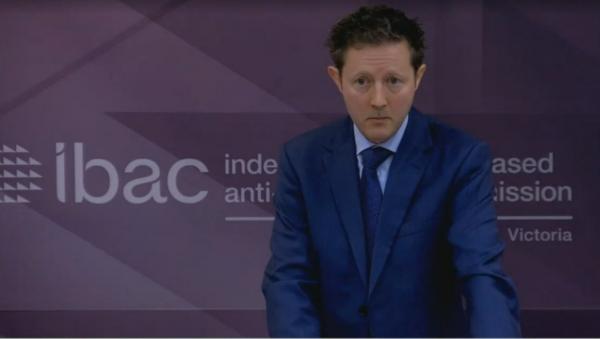
By Cam Lucadou-Wells
The Labor Party’s Victorian division has refused to cooperate with an IBAC branch-stacking inquiry, says the inquiry’s Counsel Assisting.
Chris Carr told the Operation Watts inquiry on 1 November that solicitors for the ALP state branch had declined to provide a requested statement addressing “various issues”.
These included some information discovered by former Premier Steve Bracks and ex-federal Minister Jenny Macklin during an internal report on branch-stacking in 2020.
The Bracks-Macklin report “made the point that it is clear that the problems of branch stacking go beyond a certain group of people operating in isolation from the rest of the party”.
“Mr Bracks and Ms Macklin referred to this (IBAC) investigation, recognised its importance and assured members of the ALP that the branch will assist with enquiries where it is requested,” Mr Carr said.
Solicitors for IBAC were pursuing the issue, he said. If necessary, more witnesses would be summonsed to the hearings to give evidence.
“It is to be hoped that the Victorian Branch of the ALP will cooperate by providing such information voluntarily.”
The ongoing hearings from 11 October have called witnesses admitting to branch-stacking activities including federal Holt MP Anthony Byrne and state MP Adem Somyurek’s former electorate officer Adam Sullivan.
During the inquiry, Narre Warren North MP and factional ally Luke Donnellan resigned from State Cabinet after being outed for paying for other ALP members’ renewals and membership fees.
On 1 and 3 November, the inquiry has examined electorate officers for state MP and former Minister Marlene Kairouz.
Mr Carr, in his opening statement on 11 October, said the inquiry would explore “serious corrupt conduct by Victorian public officers“.
This included MPs directing their taxpayer-funded staff to perform party-political work during work hours.
It also investigates state funding to community associations being misused for party-political activity.
Among the listed groups of interest is the Springvale-based Cambodian Association.
Mr Carr described branch-stacking as “organising people to join a political party, which they have little genuine interest in joining”.
“Of course, few reluctant members would part with their money to join, so an integral aspect of branch-stacking is the payment of membership fees by politicians, aspiring politicians, their associates, or those seeking to obtain influence.”
Mr Byrne confirmed the use of public-paid electorate officers and ministerial staff being used for factional activities during work time, such as filling in blank membership ballots.
Some staff were employed at Mr Byrne’s office at the request of Mr Somyurek and never showed up for work for months, Mr Byrne alleged.
Mr Byrne portrayed himself as someone who tried to “de-escalate“ branch-stacking in the South East. Meanwhile, Mr Somyurek was “ramping up“ branch-stacking in recent years, Mr Byrne told the inquiry.
“As Adem was getting more and more power, it was almost becoming an existential threat for the Labor Party.”
Mr Somyurek, through his lawyer, asserted in cross-examination that it was Mr Byrne that “ran the show“.
The hearing was expected to run for five weeks.






